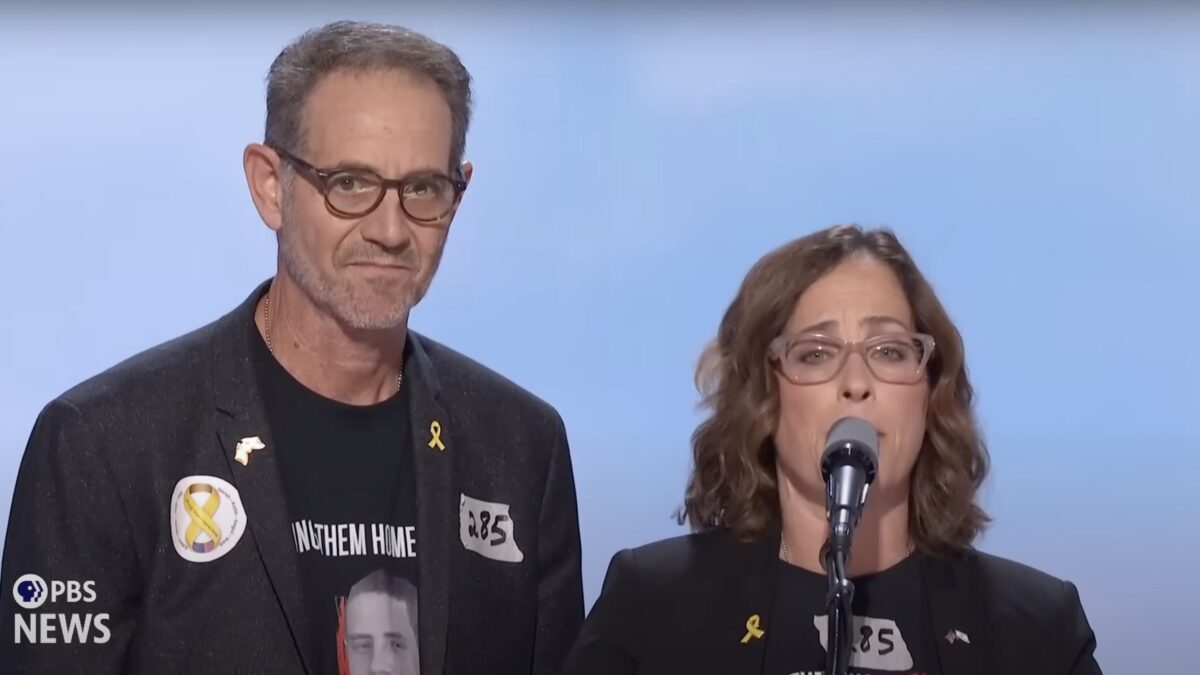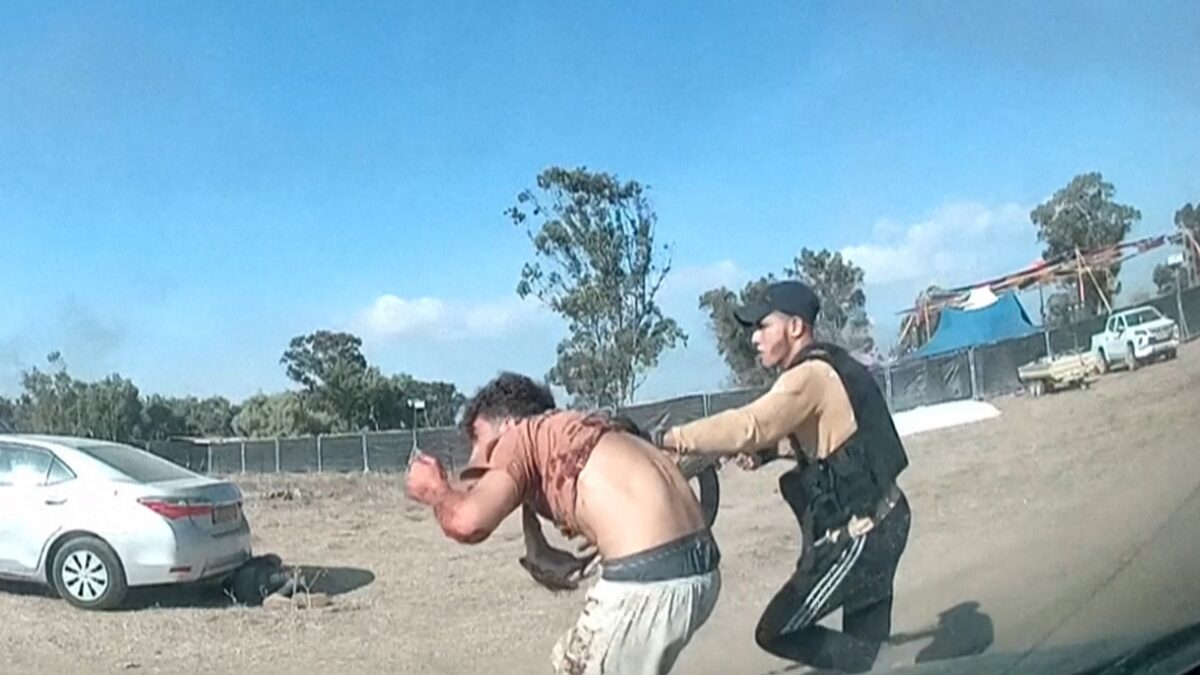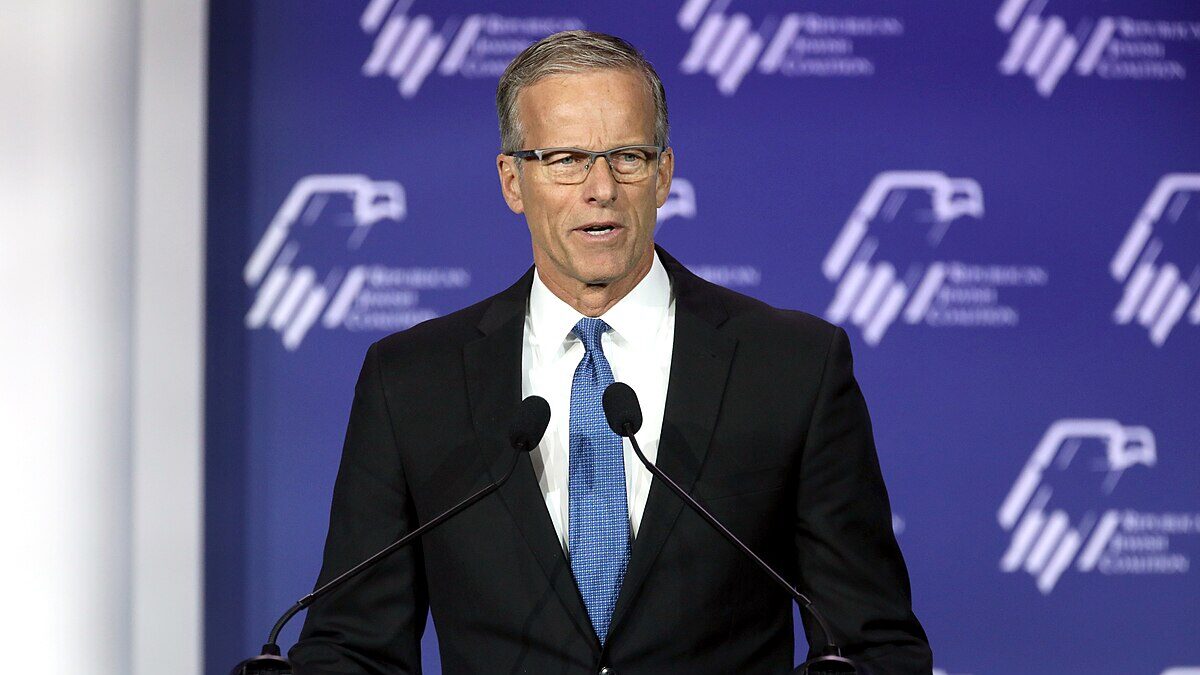
After every Islamist terror attack, investigators search for clues for what inspired the attackers and who helped them. Since the rise of the Islamic State, this has often meant looking for local recruiters or for connections to ISIS members in Syria or Iraq.
But some of the most influential radical clerics who have played a crucial role in recruiting and inspiring terrorists live in Western countries. Take Anjem Choudary, the British Salafist “hate preacher” who was convicted last year for inviting support for ISIS, after two decades of preaching Islamic domination, praising terrorists, and having connections with Islamist networks throughout Europe. There’s also the case of Musa Cerantonio, the Australian convert to Islam and popular radical preacher who on social media urged Muslims to join ISIS.
After the London Bridge attack that killed seven and injured 48 nearly two weeks ago, the clues are pointing in an unusual direction: America.
Khuram Butt, one of the London Bridge attackers, was allegedly an avid follower of a radical Salafist Islamic preacher, Ahmad Musa Jibril, who lives in Dearborn, Michigan. One of Butt’s friends told the BBC in an interview that his friend listened to Jibril’s sermons, which he called “very radical.” He was so concerned that he called the British government’s anti-terror hotline to alert them. The man went on to tell the BBC, “I am surprised this stuff is still on YouTube and is easily accessible.”
Here is the crux of the issue: how is a radical cleric, who was well-known to authorities, able to keep inflammatory Islamist sermons posted online without any pushback from authorities? What can social media companies and websites do to take down this kind of content? And to what extent is it their responsibility to do so?
Ahmad Jibril Is Apparently Very Influential for ISIS
So just how effective is Jibril? He is considered one of the most influential online clerics for followers of ISIS and radical Islam more generally. According to the deputy director of the Program on Extremism at George Washington University, Jibril’s “prominence is second only to (the late Yemeni-American cleric) Anwar Awlaki” among English-speaking ISIS supporters.
Awlaki, a U.S.-born cleric, was a top recruiter for al-Qaeda. He preached from his Virginia mosque to three of the 9/11 attackers, presided over the funeral of Fort Hood shooter Nadal Hasan’s mother, and is thought to have helped plan the attempted Christmas 2009 bombing of a Northwest flight into Detroit.
In 2014, the International Centre for the Study of Radicalization and Political Violence (ICSR) studied the Facebook pages of Syrian foreign fighters, including those fighting with ISIS and the al-Qaeda-linked al Nusra Front, and found that 20.9 percent of those examined had liked Jibril’s page (second place went to Cerantonio). At the time the report was released, Jibril’s fan page had more than 145,000 likes. It currently has 247, 242, despite being inactive since July 2014. As of the ICSR report, 60 percent of foreign fighters with Twitter accounts followed him. The ICSR found Jibril to be the most popular clerical authority for foreign fighters.
Their report on foreign fighter networks describes Jibril’s tactics:
Jibril is not a conventional cleric. It should be pointed out that Jibril does not openly incite his followers to violence nor does he explicitly encourage them to join the Syrian jihad. Instead, he adopts the role of a cheerleader: supporting the principles of armed opposition to Assad, often in highly emotive terms, while employing extremely charged religious or sectarian idioms. The general demeanour of his posturing towards the West is confrontational and distrusting, fuelling the perception of a Western conspiracy against both Islam and Muslims.
Jibril has been tied to two other cases in which men in the Detroit area are accused of ties with ISIS. Both men listened to Jibril’s sermons.
The Conflict Between Terrorism and Free Speech
Jibril, who has his own channel on YouTube, is important in part because he’s able to reach out to and communicate with English-speaking Muslims in the West. But he’s also a crucial tool in reaching out to Western Muslims because he’s spreading his message from the safety of the United States, where his speech is highly protected.
Were Jibril living in Europe, authorities perhaps would have arrested him back in 2014 during the surge in foreign fighters going to fight with ISIS, or would have taken his content down (YouTube has declined to take down the videos in question). America provides a shield for preachers like him because of how seriously our country takes individual freedom of expression.
The two primary exceptions to the First Amendment are what’s known as “fighting words,” words said to another individual to which any reasonable person would respond with violence (a subjective but fairly high bar), and incitement to violence. The latter case only applies if it can be shown the speech is intended to produce “imminent lawless action” and is likely to do so. Neither of these would apply to a cleric like Jibril, who has been careful not to call explicitly on Muslims to join ISIS.
The U.S. government instead tries to get ISIS propaganda off the Internet through cyberattacks, but as a recent New York Times report details, these efforts are failing because of the group’s nimble ability to get its materials back up soon after they’ve been taken down. But even if those efforts weren’t inadequate, it wouldn’t help with Jibril because he’s not technically doing anything wrong.
If the government’s hands are tied, what about social media companies? Facebook, Twitter, Microsoft, and YouTube all announced in December that they would improve their reaction time in taking down “the most extreme and egregious terrorist images and videos” by intelligence sharing between companies. The plan involves creating a database of unique digital “fingerprints” to help identify those images and videos to remove them swiftly.
But, again, Jibril was more careful than that, and his sermons and materials clearly have not been removed from any of these sites. What’s more, ISIS is shifting its tactics, using more end-to-end encryption apps like Telegram and WhatsApp to recruit and communicate.
So what can the FBI or other law enforcement do in a case like this? Nothing. The only way to stop someone like Jibril would be to fundamentally change our country’s system of governance. It would require an overhaul of America’s conception of free speech, essentially making it subjective to whichever party is in power, a highly dangerous proposition. Or it would entail radical changes to the Fourth Amendment, lowering the bar for requests for wiretaps and other kinds of surveillance of people suspected of having ties to terror groups.
The bottom line is that if we want better security at home we’re going to have fewer freedoms. That’s a slippery slope, and we know where it ends. So, dismal though the forecast might be, men like Jibril cannot be silenced, and can go on influencing and inspiring would-be jihadists.









